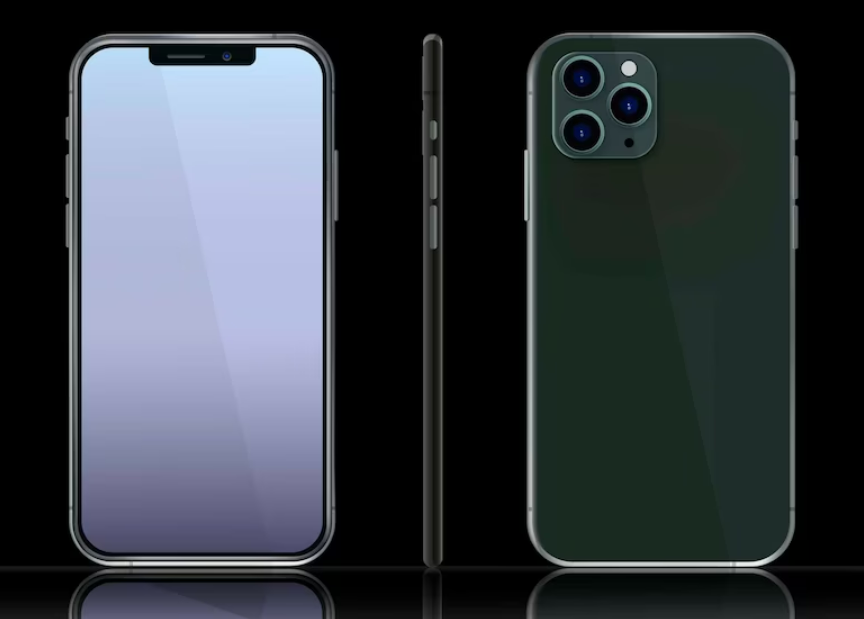When buying a new smartphone, camera quality is one of the most critical factors for many people. About 90% of photos are now taken with smartphones, so it’s more important for some people to choose the right phone for their photography needs.
The answer isn’t as simple as saying “Android” or “iPhone.” It all depends on what type of photos and videos you want to take. Each phone has its strengths and weaknesses when it comes to photography. This article will compare the cameras on both phones to decide which is right for your needs.
What Do Most People Want from Their Smartphone Cameras?
The answer is usually “better photos.” Most people want to take clear, sharp photos with vibrant colors and lighting. Android and iPhone camera phones have made leaps and bounds recently, offering excellent image quality. Many people also want a camera that takes good low-light photos. As more and more people live indoors and at night, choosing a phone with a good low-light camera is essential.
Comparing Android and iPhone Camera Features
Android and iPhone offer great photography features that make it easier to take better photos. Different mobile camera systems have various features, so it’s essential to compare the characteristics of each phone. Here are some of the things to consider when choosing which phone is better for photography:
1. Price
As with any product, price is a significant factor when comparing Android and iPhone camera phones. iPhones are more expensive than comparable Android models. The price difference might be worth it depending on the features of each phone and what you’re looking for in a camera.
For example, the latest iPhone 14 Pro costs around $799 to $1,099. This is more expensive than most Android devices, with the Samsung Galaxy devices costing around $550 to $820. However, the iPhone 14 Pro offers second-generation sensor-shift features for optical image stabilization and improved low-light photography. This could be worth the extra money for some people.
2. Camera Apps
IPhone and Android operating systems (OS) have their selection of photography apps that can give you more control over your photos. iPhones generally have a more extensive selection of photography apps than Android devices. For example, the iPhone features native camera apps like ProCamera, VSCO, and Polarr. Android has good photography apps like Adobe Lightroom, Camera FV-5, and Camera Plus. The camera app you choose can greatly impact your photos, so consider which works better.
3. Hardware
What is a smartphone camera lens? This is the physical lens that captures images. In terms of hardware, iPhone and Android cameras offer great lenses for capturing clear and sharp photos. Lenses and sensors are the two most essential components in a good camera phone. An iPhone typically has better lenses and higher-resolution sensors than an Android phone. This means that iPhones tend to take sharper photos with better color accuracy. The digital zoom on iPhones is also usually better than on Android phones.
4. Resolution
Android and iPhone camera phones offer a wide range of resolutions, which can make a big difference in the quality of your photos. The Android operating system provides a range of resolutions from 1080p to 4K, while the iPhone offers resolutions up to 8K. The iPhone might be a better option if you want extremely high-resolution photos.
Android smartphones do have a few advantages when it comes to resolution, though. For example, some Android phones can shoot in RAW format, which is excellent for post-processing and editing.
5. Portrait Modes
One of the most popular features of smartphones is portrait mode. With this feature, you can effortlessly capture a picture where the primary focus is on your subject while the background appears artfully blurred. Both Android and iPhone offer portrait modes, but the iPhone usually takes better-quality photos with this feature. The camera on the latest iPhones can also adjust the depth of field, giving you more control over your images.
6. Dual-Camera System
Some Android and iPhone devices have a dual-camera system, which allows you to take photos with two lenses. This can give you more control over your photos and help you capture better-quality images. Android phones typically offer a more comprehensive range of dual-camera options than iPhones, so if this feature is essential to you, then Android might be the better option.
Other Key Features
The mobile phone camera market is ever-evolving, with new features being released regularly. Features such as zoom enhancements, video stabilization, depth of field control, and advanced image processing are becoming increasingly popular. But there are many other phone features to consider.
1. Battery
Your phone’s battery life is also essential when it comes to taking photos. If you plan on taking many photos, you’ll want to ensure you have a phone with good battery life. If you are interested in photography, the superior battery life offered by the iPhone could be a decisive factor.
2. Interface
The interface on each device is also essential when taking photos. Android and iPhone have great camera interfaces, but each has advantages. Android devices typically offer more manual control over your images, while iPhones are simpler and easier to use.

3. Storage
If you plan on taking many photos, you’ll need plenty of storage. Expandable storage is an excellent feature for both Android and iPhone users. Android phones offer more options when it comes to storage, but iPhones also provide plenty of storage options. If storage is a major concern, Android might be the better option.
4. Additional Features
Modern smartphones offer many other features, such as streaming live video, taking images in slow motion, and using augmented reality (AR) for image processing. Different phone models offer various features, so compare each phone’s features before you buy.
Pros/Cons of Each Camera Type
Android Camera Pros
- Android cameras are often cheaper than other types of cameras.
- Most Android cameras are designed to be intuitive and user-friendly.
- Android cameras usually come with various features, such as image stabilization and auto-focus, which can make taking photos easier.
- Most Android cameras allow for the wireless sharing of photos, making it easier to share your work with family and friends.
Android Camera Cons
- Android cameras often don’t have the same level of picture quality as other types of cameras.
- Not all Android cameras are compatible with all devices, making using different devices more challenging.
- Android cameras have shorter battery life than other cameras, meaning you must recharge your camera more often.
- Many Android phones do not have an interchangeable lens, meaning you are limited to the same field of view with each shot.
iPhone Camera Pros
- iPhones are typically more powerful than Android cameras, giving you sharper and better-quality photos.
- iPhones usually come with a more excellent range of features, such as facial recognition and manual focus, making taking photos easier.
- Most iPhones come with an interchangeable lens, allowing you to switch out lenses for different shots.
- iPhones usually have longer battery life than Android cameras, meaning you won’t need to charge your phone as often.
iPhone Camera Cons
- iPhones are more expensive than Android cameras, making them more challenging for some people to purchase.
- iPhones often require special software for transferring and sharing photos, meaning sharing your work with others can be harder.
- iPhones are not always compatible with all types of devices, making them more difficult to use with different types of devices.
- iPhones are less intuitive and user-friendly than Android cameras, making them more challenging for some people.
How To Choose The Right Smartphone Camera?
There is no one-size-fits-all answer regarding choosing the right smartphone camera. It all depends on what you need in a camera and how much you will spend. Consider the features of each phone, such as storage, resolution, battery life, and portability. Also, consider any special features you may need, such as image stabilization or portrait mode.
What Lasts Longer: Android or iPhone Cameras?
In terms of durability, both Android and iPhone cameras are about equal. IPhones have better-quality components and often last longer than Android phones. This is partly due to Apple’s strict quality control measures and the use of more durable materials.
But, even if an iPhone camera lasts longer, it’s important to remember that both phones will eventually need to be replaced. Android and iPhone cameras have a limited lifespan and ultimately need to be upgraded.
Are There Other Options?
Need help deciding on the perfect camera for you? Don’t worry – there are a plethora of options available that can certainly help! Professional-grade cameras offer outstanding image quality but can be expensive and difficult to use. Digital cameras have become increasingly popular in recent years, offering excellent image quality without the extra cost or complexity of professional cameras.
How to Maintain Your Smartphone Camera
No matter the camera you select, it’s paramount to safeguard and nurture it. Most smartphone cameras are not waterproof and should not be used in wet or humid conditions. Ensure you keep your camera clean, and regularly check for dust or dirt on the lens. Keep your phone charged and store it in a dry, cool environment when not in use.
Finally, regularly backup your photos to an external drive or cloud storage service. This will help protect your work if something happens to your camera. You could also use an external camera case or lens to give you more control over your photos. Many of these cases are inexpensive and can significantly improve the quality of your photos.
Every phone has its strengths and weaknesses when it comes to photography. It’s essential to look at various factors when comparing Android and iPhone camera phones to determine which one is best for your needs. Depending on your camera needs, either phone could be the right choice. But no matter which type of phone you choose, you can be sure that you’ll have plenty of options to help you take the best possible photos.





